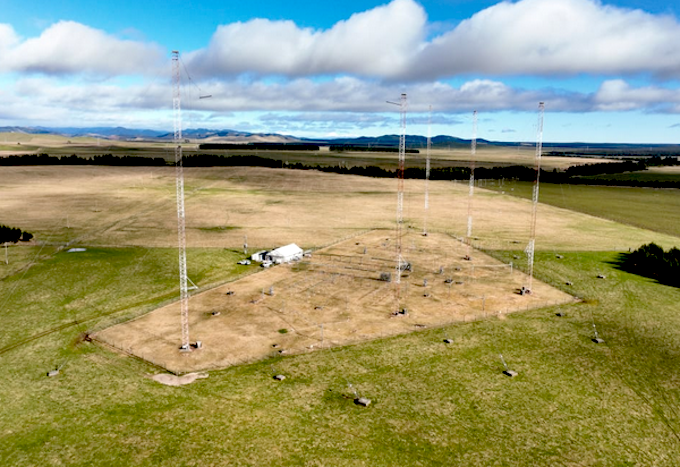
By Moera Tuilaepa-Taylor, RNZ Pacific manager
RNZ International (RNZI) began broadcasting to the Pacific region 35 years ago — on 24 January 1990, the same day the Auckland Commonwealth Games opened.
Its news bulletins and programmes were carried by a brand new 100kW transmitter.
The service was rebranded as RNZ Pacific in 2017. However its mission remains unchanged, to provide news of the highest quality and be a trusted service to local broadcasters in the Pacific region.
Although RNZ had been broadcasting to the Pacific since 1948, in the late 1980s the New Zealand government saw the benefit of upgrading the service. Thus RNZI was born, with a small dedicated team.
The first RNZI manager was Ian Johnstone. He believed that the service should have a strong cultural connection to the people of the Pacific. To that end, it was important that some of the staff reflected parts of the region where RNZ Pacific broadcasted.
He hired the first Pacific woman sports reporter at RNZ, the late Elma Ma’ua.

The Pacific region is one of the most vital areas of the earth, but it is not always the safest, particularly from natural disasters.
Disaster coverage
RNZ Pacific covered events such as the 2009 Samoan tsunami, and during the devastating 2022 Hunga Tonga-Hunga Haʻapai eruption, it was the only news service that could be heard in the kingdom.
More recently, it supported Vanuatu’s public broadcaster during the December 17 earthquake by providing extra bulletin updates for listeners when VBTC services were temporarily out of action.
Cyclones have become more frequent in the region, and RNZ Pacific provides vital weather updates, as the late Linden Clark, RNZI’s second manager, explained: “Many times, we have been broadcasting warnings on analogue shortwave to listeners when their local station has had to go off air or has been forced off air.”
RNZ Pacific’s cyclone watch service continues to operate during the cyclone season in the South Pacific.
As well as natural disasters, the Pacific can also be politically volatile. Since its inception RNZ Pacific has reported on elections and political events in the region.
Some of the more recent events include the 2000 and 2006 coups in Fiji, the Samoan Constitutional Crisis of 2021, the 2006 pro-democracy riots in Nuku’alofa, the revolving door leadership changes in Vanuatu, and the 2022 security agreement that Solomon Islands signed with China.
Human interest, culture
Human interest and cultural stories are also a key part of RNZ Pacific’s programming.
The service regularly covers cultural events and festivals within New Zealand, such as Polyfest. This was part of Linden Clark’s vision, in her role as RNZI manager, that the service would be a link for the Pacific diaspora in New Zealand to their homelands.
Today, RNZ Pacific continues that work. Currently its programmes are carried on two transmitters — one installed in 2008 and a much more modern facility, installed in 2024 following a funding boost.
Around 20 Pacific region radio stations relay RNZP’s material daily. Individual short-wave listeners and internet users around the world tune in directly to RNZ Pacific content which can be received as far away as Japan, North America, the Middle East and Europe.
This article is republished under a community partnership agreement with RNZ.












































